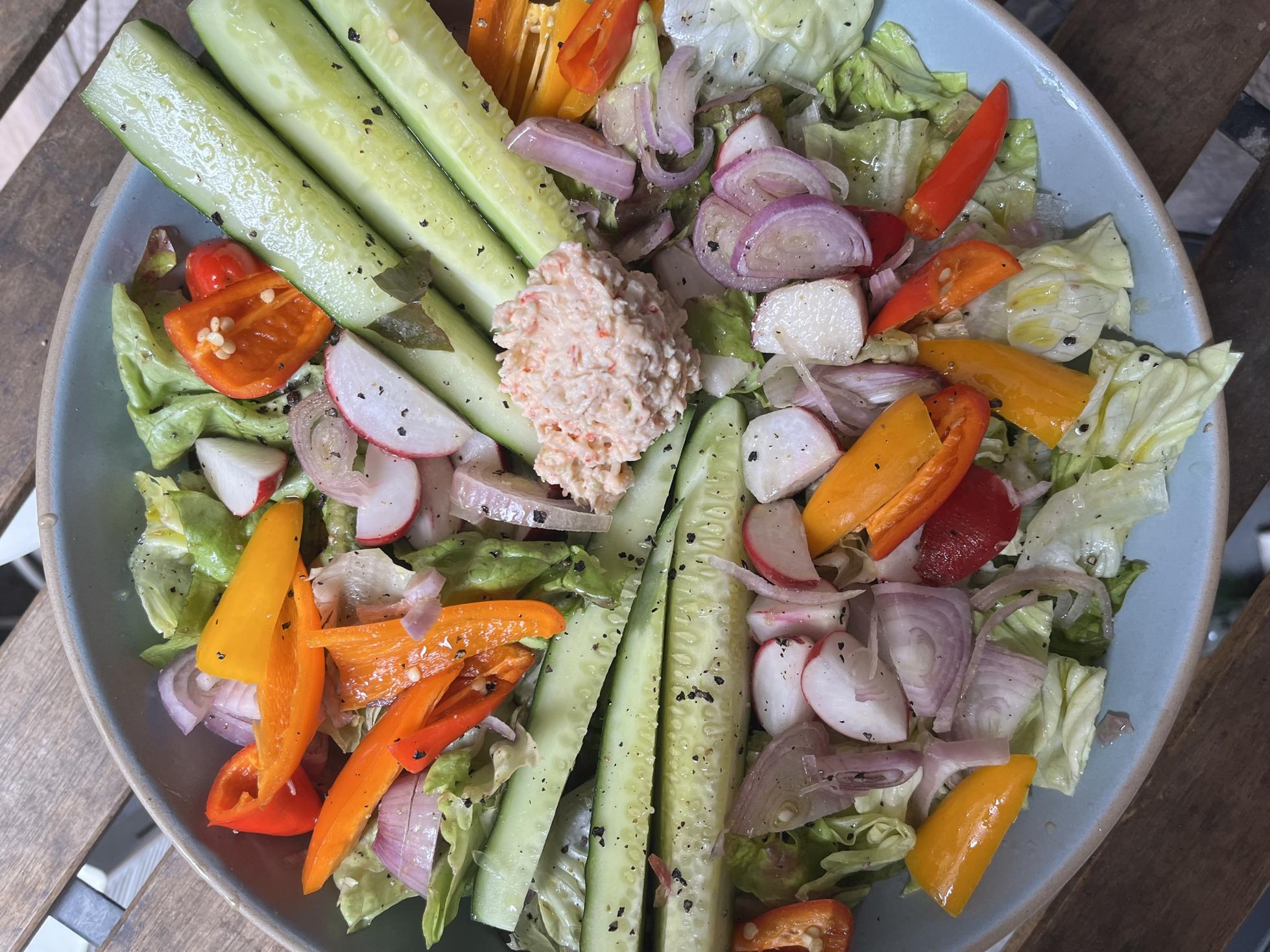I recently decided to test out one of those Instagram-advertised boxes of grass-fed meat, and modern shipping delays rendered it all defrosted by the time the meat arrived on my Manhattan doorstep. So what did I do? I cooked. I cooked like I was racing against myself in my own Food Network competition. I could almost hear an announcer giving a play-by-play for an episode of Chloe’s Zero-Waste Kitchen.
My frenzy turned into an impromptu meal-prepping that actually lasted my husband and me the entire week. I air-fried quartered potatoes and wings for lunch and then boiled the bones down into a stock. I marinated six chicken breasts. I simmered three pounds of ground pork in a tomato sauce and jarred it all up. Then I assembled the pasta with some sauce, ricotta and mozzarella. I salted and dried out eggplants to prep them for grilling. I cut cucumbers with sliced tomatoes and drizzled on 30 under 30 alum Diaspora Co.’s light yet tangy coriander vinegar, made in collaboration with Acid League.
I’ve never been good about meal-prepping, but this experience may have changed me. Or maybe I was just happy to avoid a lot of food waste, which contributes massively to greenhouse gas emissions and really just squanders resources that are already in short supply.
My cookout reminded me, too, that late summer is a time of bounty. Gardens overflowing with zucchinis and herbs. Community-supported agriculture share boxes teaming with tomatoes, corn and peppers. Produce like stone fruit on sale at grocery stores. But how much of the abundance around us will actually be put to use? And how much will never make it to where it’s needed most?
— Chloe Sorvino, Staff Writer
This is Forbes’ Fresh Take newsletter, which every Friday brings you the latest on the big ideas changing the future of food. Want to get it in your inbox every week? Sign up here.
What’s Fresh
Food Waste Costs U.S. Taxpayers Billions Of Dollars A Year. Every year, $400 billion ends up in dumpsters, and because it cuts into corporate profits, companies can treat it as tax deductible. Story by Yours Truly.
The Whole Foods Label Says The Meat Is Free Of Antibiotics, But A Lawsuit Claims That’s Not Always True. A class action filed Tuesday aims to reverse the trend of undisclosed use of antibiotics in the no-antibiotics-ever meat industry and to curb the spread of antibiotic resistance, which is driven by overuse of antibiotics in industrial meat production. Story by Yours Truly.
Mario Batali Settles Two Sexual Misconduct Lawsuits Against Him. The former Food Network star settled the lawsuits for an undisclosed amount, as Marisa Dellatto reports.
CDC: New E. Coli Outbreak May Be Linked To Wendy’s Romaine Lettuce. The suspect is the romaine lettuce on Wendy’s burgers and sandwiches served in at least three states, Dr. Bruce Y Lee writes.
VIDEO: The Future of Meat. Forbes Newsroom host Diane Brady spoke to Chloe Sorvino on the future of meat.
Lobster salad, salad.
Chloe Sorvino
A summer salad topped with, more salad! The dollop here is lobster salad.
Chloe Sorvino leads coverage of food and agriculture as a staff writer on the enterprise team at Forbes. Her book, Raw Deal: Hidden Corruption, Corporate Greed and the Fight for the Future of Meat , will publish in December 2022 with Simon & Schuster’s Atria Books. Her eight years of reporting at Forbes has brought her to In-N-Out Burger’s secret test kitchen, drought-ridden farms in California’s Central Valley, burnt-out national forests logged by a timber billionaire, a century-old slaughterhouse in Omaha, and even a chocolate croissant factory designed like a medieval castle in Northern France.
Thanks for reading the forty-fourth edition of Forbes Fresh Take! Let me know what you think. Subscribe to Forbes Fresh Take here.

